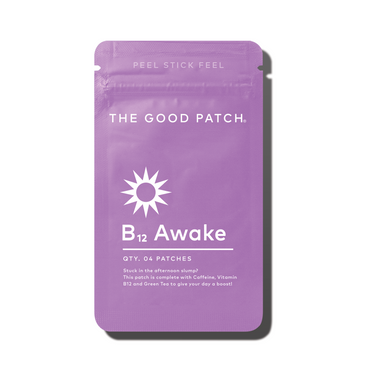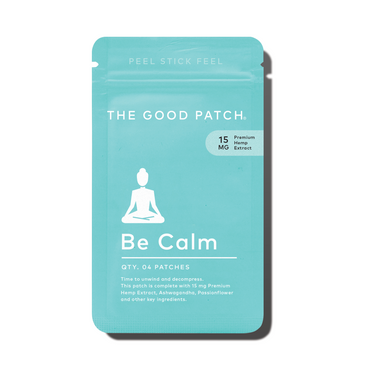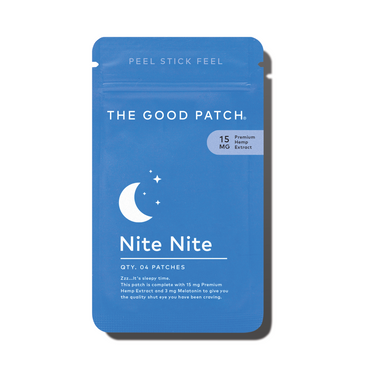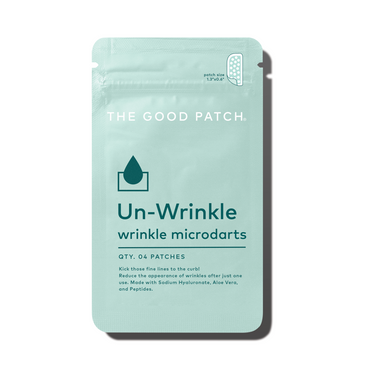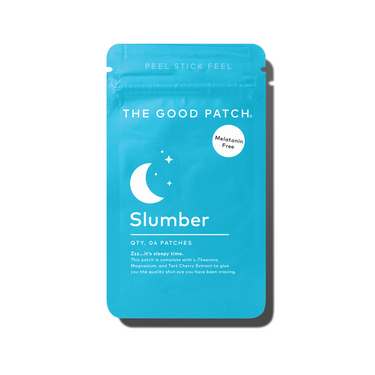“The early bird gets the worm.”
We hear this expression all the time, and unfortunately for those of us who like to sleep in once (or many times) in a while, in some ways, it’s very true. School and work often begin in the early hours of the morning, and waking up on time, let alone arriving ready to be productive, can be quite difficult when you aren’t a naturally early riser.
Luckily here at The Good Patch, we understand the struggle and have put together a cheat sheet to kick your day off sooner in a way that works for you. From keeping a consistent bedtime to making exercise a regular habit, we’ll have you loving the early bird life in no time!
What Is a Morning Person?
Your tendency as a night owl to get up and stay up later isn’t a sign of laziness but rather an indication of your unique chronotype. In other words, we all have slightly different biological clocks that decide when we are most awake and when we are ready for bed.
This manifests in the form of a circadian rhythm which determines the release of melatonin and influences your daily sleep schedule. Though chronotypes are not easy to change, there are many ways to adapt your circadian rhythm to an earlier schedule.
Morning people find that their internal clock follows the pattern of the sun, and they are filled with energy early in the day without needing even a cup of coffee. On the other hand, night owls have a later chronotype that makes them feel most awake at night and, therefore, have more difficulty rising early in the morning.
Why Become a Morning Person?
Let’s not get it twisted — nobody’s chronotype is intrinsically better than another’s. There are, however, advantages to being most energized at different times of the day, and society’s schedule doesn’t always match the natural sleep-wake cycle of evening people.
With many important events and activities planned for the start of the day, night owls often fail to get enough sleep to perform as well as they can. Sleep experts suggest that we need somewhere between seven and nine uninterrupted hours of sleep to feel and do our best the next day, so not falling asleep until one in the morning with a wake-up time of 6:00 a.m. just doesn’t cut it.
Feeling behind and tired all the time can be frustrating and negatively impact your mental health, but you don’t have to stay that way! Through a combination of healthy morning and bedtime routines, exercise, and other small adjustments, you can find a new schedule that meets your body’s needs and lets you take on the day with all that untapped physical and mental energy.
How Do We Become Morning People?
Whether you want to shift your sleep patterns for work or school or simply to give yourself more waking hours during the daylight to do the things important to you, there are a few tips to follow to get you on the right track.
Remember, whatever your current sleep cycle may be, it’s likely your body’s natural schedule! Be gentle with yourself to make space for mistakes and self-care so that you not only benefit from your new morning person status but also enjoy the journey.
Hit the Hay Early
As much as we’d love to give you a life hack that gives you the best of both worlds, the healthiest way to transition from a night owl to an early bird is to get to bed earlier.
There’s no need to quit your late-rising cold turkey, but try progressively shifting your bedtime 10 to 15 minutes earlier. At the same time, set your alarm clock earlier and begin to train your body.
If you’re struggling to adapt to your new schedule, the Dream patch may be the extra support you need.
Practice Good Sleep Hygiene
Healthy sleep practices, also known as sleep hygiene, are the many habits that allow you to get the best sleep possible and feel rested enough to meet that early wake-up call with no complaints.
Most of the following tips fall under good sleep hygiene, so understanding its importance is a key first step.
A few factors, some of which we will discuss in depth later on, include:
- Engaging in relaxing activities before bed
- Get active and exercise
- Avoiding stimulants before bed
Our environment can be just as essential to getting better sleep. Make sure your bedroom is quiet and cool, and consider investing in blackout curtains to keep your room dark. Resetting your body clock can do wonders for your sleep quality.
Create a Nighttime Routine
We humans are creatures of habit, so rewiring your brain to want to sleep earlier will be much easier with a routine. Discovering activities that help you wind down will signal to your body that it is time to sleep.
Here are a few popular methods of relaxation:
- Meditation and mindfulness
- Reading a book
- Listening to calming music
- Taking a warm bath.
Calming down after a long day can be tough, but our Relax patch is perfect for any lasting stress.
Though many of us love to decompress on social media or with our favorite TV series, it may be best to avoid electronic devices that give off blue light, which our eyes and brains can mistake as daylight, making it more difficult to sleep. To get a good amount of sleep, try to stay away from artificial light for a few hours before bed.
Create a Morning Routine
Now that you’ve mastered your evenings, it’s time to tackle those early mornings. Escape the dread of getting out of bed by building a morning routine full of things you love that encourage you to skip the snooze button. This way, you’ll have a regular wake time to help reinforce your body clock.
Giving yourself enough time for gentle stretching, a hot cup of herbal tea, or a go at the crossword can make all the difference. You can also try throwing in an outdoor morning workout to make the most of the morning light. As you ease yourself into the start of the day, try out the B12 Awake patch for an extra boost.
Learn To Love Light
Just as blue light can negatively impact our brains at night, sunlight is a powerful tool for molding our circadian rhythm. Throw open those shades in the morning to enjoy the warmth and added wakefulness of morning light exposure.
If your home doesn’t get as much bright light as you need, daylight lamps are a great alternative to supplement natural light.
Wrapping It Up
Becoming a morning person is no small feat and will take plenty of work, but we believe in you wholeheartedly. As you begin the process, remember that one sleep schedule is not better than another; rather, you are making the change to benefit yourself.
The most important thing is to embrace the challenge … and get some sleep!
Sources:
Blue light has a dark side | Harvard Health
How Sleep Works - Why Is Sleep Important? | NHLBI, NIH
Chronotypes: Definition, Types, & Effect on Sleep | Sleep Foundation


